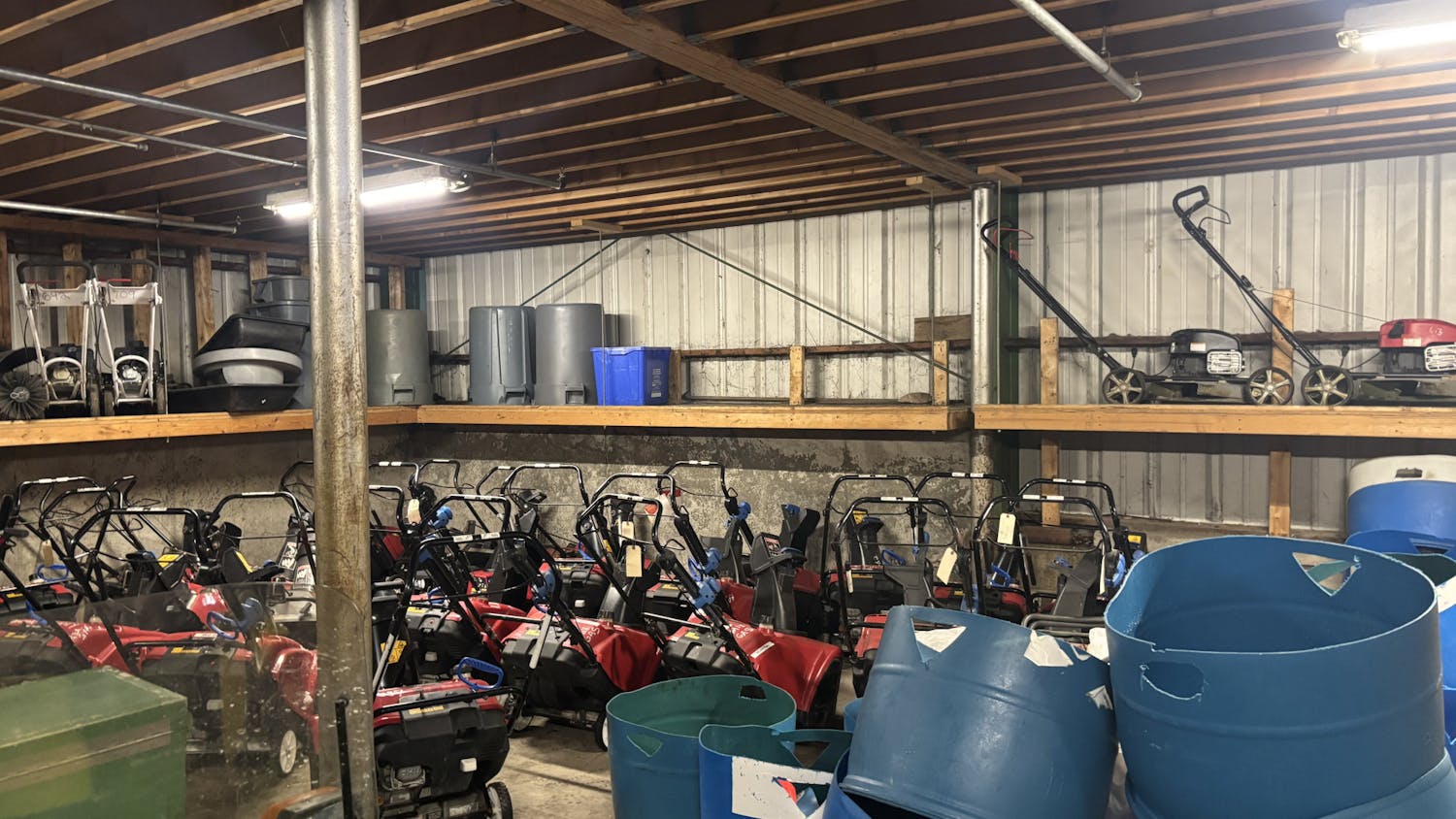Author: Andrea Gissing
Ginny Hunt '03 and Ben LaBolt '03 were elected Student Government Association (SGA) President and Student Co-chair of the Community Council (SCCOCC), respectively, in last week's elections. The results were announced in a campus-wide e-mail sent out by the Elections Council on Friday.
Hunt, receiving 67 percent of the votes cast, won the race for SGA president over Neil Onsdorff '03 by a margin of 537 votes.
LaBolt, who received 54 percent of the SCCOCC votes, defeated Fahim Ahmed '03 by a margin of 258 votes. In this year's election, voter turnout was approximately 60 percent, totaling 1,328, an increase of 119 from April 2001.
Both candidates and present position holders expressed enthusiasm at the increase in student participation in the election. "I was really pleased with the increased number of votes," commented Brian Elworthy '02.5, current SGA president. "There has been a steady increase in the past few years. I hope that it has to do with the SGA beginning to address issues concerning a wide range of students, getting the attention of a broader constituency," he added.
Dean of Student Affairs and Faculty Co-chair of the Community Council Ann Hanson agreed, saying, "Since we have gone to a Web-based election, the turnout has been much better."
President-elect Hunt said the election was a positive experience. "Having WRMC doing the broadcasting for the debates was good for the SGA elections. They brought a new perspective that made us realize that it is on our end to access or reach out to the student body," she remarked.
Candidates' outreach to the student body created fairly competitive races, according to SCCOCC Erica Rosenthal '02.5. "I think that all four candidates in this year's SGA elections were very strong candidates for the positions. In terms of the student co-chair specifically, I think that students recognized that both candidates had the potential to do a great job, and that was reflected in the close voting results," she said.
"I think that Fahim and Neil both ran very strong campaigns," said Elworthy. "I have tremendous amount of respect for Fahim, and I hope and expect that he will continue to work in the Senate. It would be a tremendous loss to the student body if [he] did not continue [in that capacity]. I hope that Neil will also continue his involvement with the Community Council. He brings a much needed voice to the floor."
While the election results may have been a "personal disappointment" for him, Ahmed felt that the "excellent turnout at the elections [spoke] volumes to the candidates' ability to engage and involve the student body." He said he looked forward to playing an active role on the SGA next year, with the possibility of a leadership role in the Senate.
"I was glad that I was able to run," Onsdorff said. "I was glad I was able to shake up the SGA a little bit. Hopefully I have given some people some new and interesting ideas to think about. As for next year, I'm keeping my options open. I'm maybe thinking about running for the SGA position on social houses."
Hunt and LaBolt are now diligently preparing for the upcoming school year. "It is exciting," said Hunt, "but a bit overwhelming. All of a sudden you have to start putting things in place."
For Hunt, the remainder of the 2001-2002 year will be spent establishing the framework to address the commons system, communicating with student coordinators at other campuses about student bars, formulating different methods of communication with the student body and forming the new President's Council. Her first priority is to form the new cabinet for next year, including the establishment of two new positions for Environmental Affairs and Commons Affairs representatives.
"I want to have the new cabinet established by the end of next week," said Hunt. "It is difficult, though. I want to get it done, but I do not want to rush it either." She has met with current cabinet members to establish criteria with which to assess the applications for the positions. "I would like my cabinet to reflect the diversity of the campus," she added.
Elworthy, who will remain on campus for the fall semester, said he would "remain as a sounding board" to provide Hunt with advice as needed. "[I am] very pleased," he continued. "I can't think of anyone else who is more prepared to serve as the student body president next year."
Hunt remarked that having Elworthy on campus next year will be an asset. "There are a few initiatives that we will be wrapping up next year, which he would want to work on." she said. "That is good for me because it will let me focus on new initiatives."
As for the future of the SGA, Hunt foresees a redefinition of certain roles, especially that of the cabinet. "I feel like the Senate has not really found its purpose," said Hunt. "Right now the focus seems to be more on the Cabinet's initiatives. There is a lot of potential in the Senate that may not have been realized yet. I feel like next year there will be significant internal changes, but I want the changes to be seen externally."
Hunt and LaBolt both predict a shift in the relationship between the SGA and Community Council next year. "I see the two bodies having distinct roles," explained Hunt. "Before it has been difficult to keep them separate, but next year Ben's going to have a lot on his plate. We will be resources for each other, but we will probably move away from the traditional president and vice-president role towards the SGA president and SCCOCC."
"We definitely have our own agendas for next year," LaBolt agreed, "but we know that we are able to work together."
LaBolt has already begun working to meet the objectives stated in his platform. "By January of 2003," he declared, "students, under the Enhanced Access Plan, will have full access to all residential facilities on campus." LaBolt is beginning to tackle the re-evaluation of the Social House review process, which he said he hopes to establish next year as well. He is also contacting the heads of student organizations on campus in order to formulate the agenda for the upcoming year. "In the past the Community Council has been responsive. I want to be proactive next year. I want us to have foresight so we can prevent problems," he affirmed.
LaBolt is also preparing to review applications for positions on the Community Council. "My biggest concern," he said, "is where the applicants come from [on campus] and where they see the College going. It is important that Community Council reflects the diverse nature of the campus."
High Turnout Propels Hunt, LaBolt to Victory
Comments



